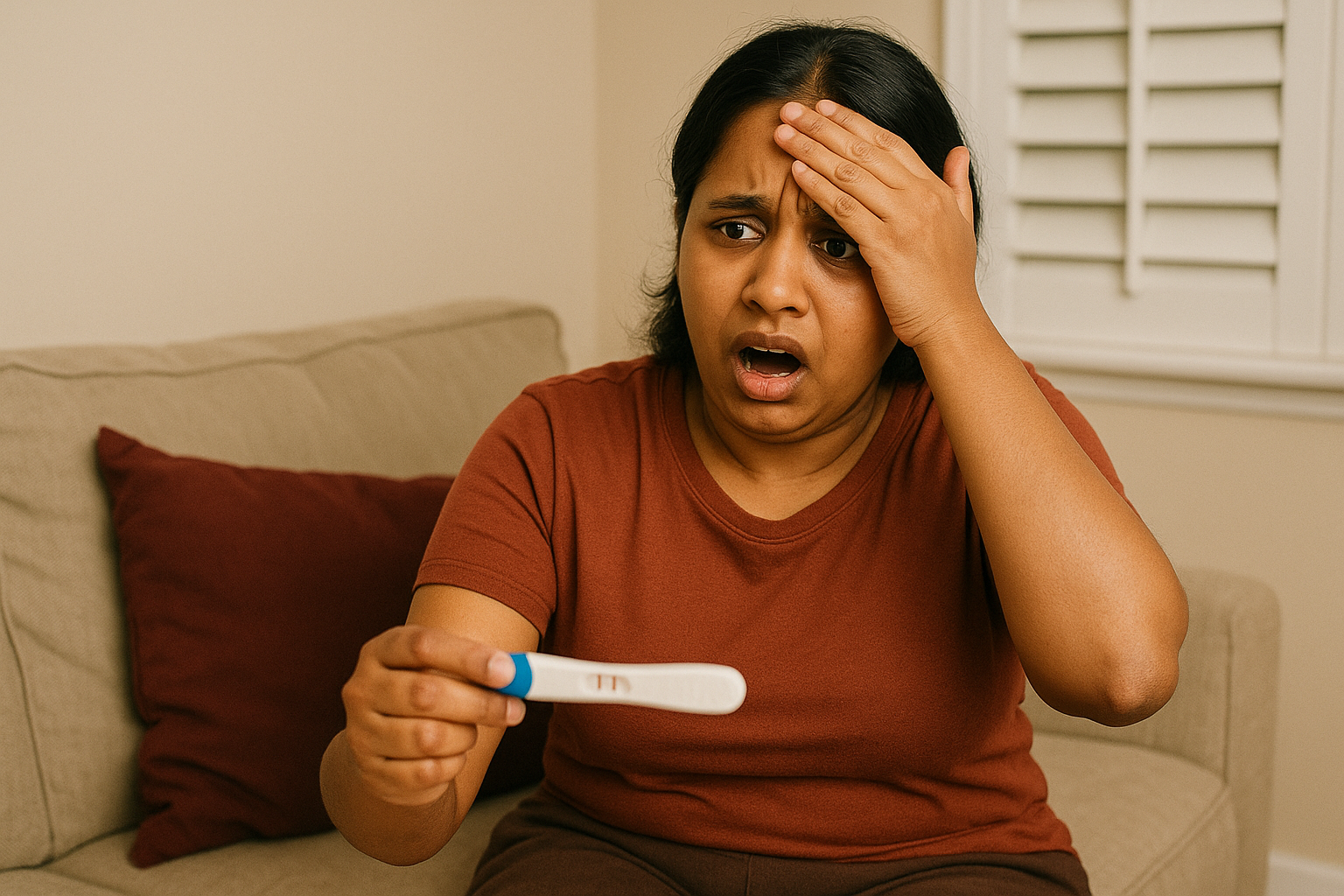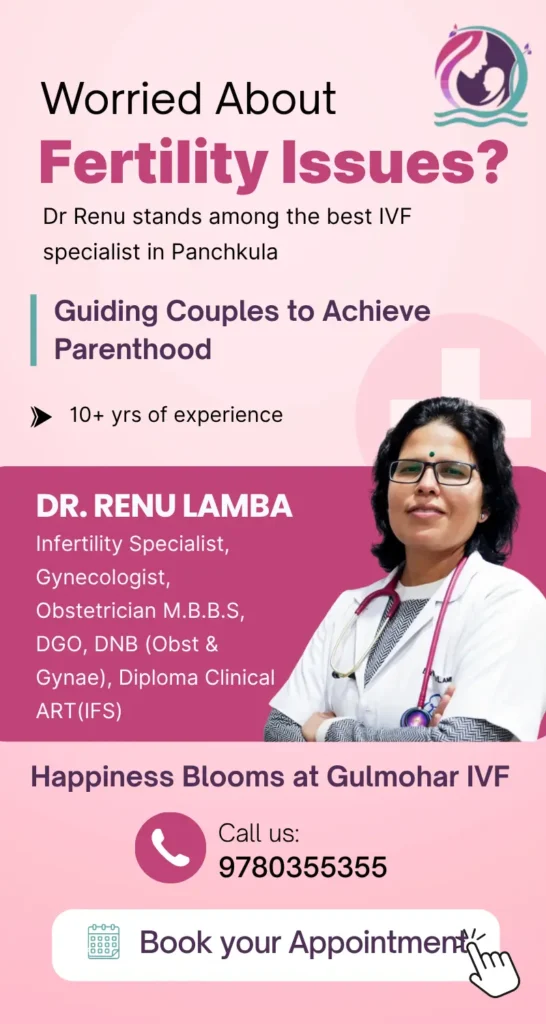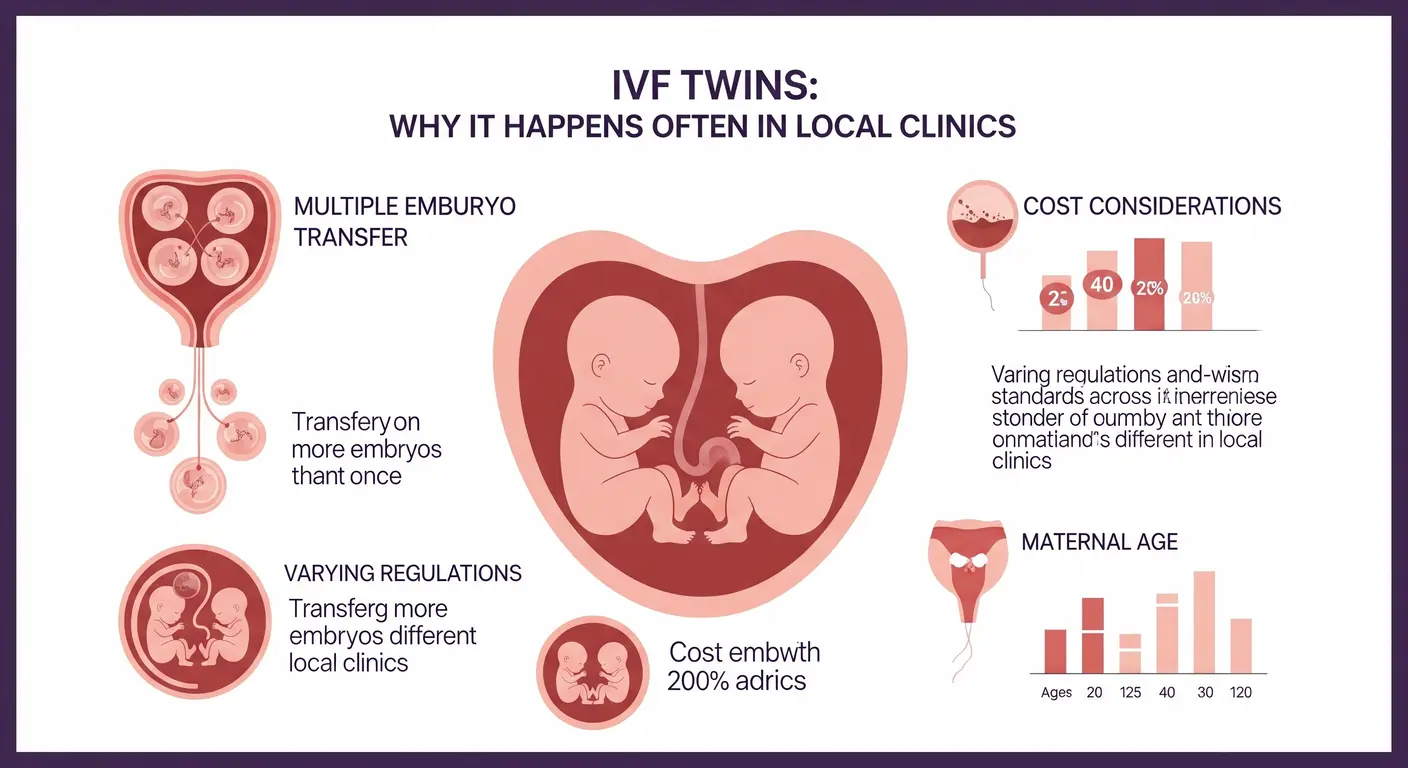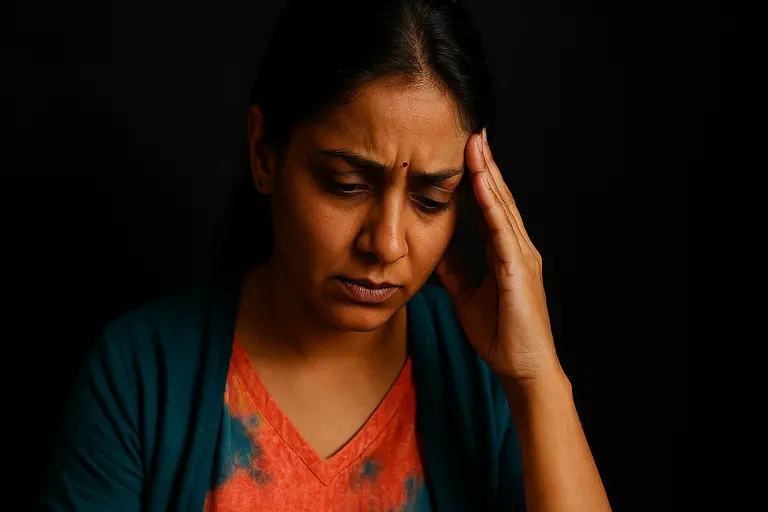It sounds strange and even illogical: how can you get pregnant while bleeding?
But the truth might surprise you.
Many women in India believe that having sex during their period is completely safe. “How can I get pregnant during my period?” is a common question we hear in the clinic.
It’s not common to get pregnant during your period but it is possible.
Whether you’re newly married, trying to avoid an unexpected pregnancy, or just curious about how your body works, understanding this can save you from emotional confusion or an unplanned journey into parenthood.
What Exactly Is a Menstrual Cycle?
Your period is just one part of your menstrual cycle. Here’s a quick breakdown:
- The cycle begins on Day 1 of your period.
- It typically lasts 28 days, but it can be shorter (21 to 24 days) or longer (up to 35 days).
- Ovulation (when the egg is released) usually occurs around Day 14 in a 28-day cycle.
- Now here’s where things get tricky: Sperm can live in your body for up to 5 days.
So, if you have sex on Day 5 or 6 of your period and ovulate early on Day 10, there’s a chance you could get pregnant. This is how pregnancy on period becomes a real possibility.
A Simple Analogy: Train Schedules and Surprise Arrivals
Think of your period like a train station cleanup crew after a train has left.
The next train is ovulation, bringing the egg.
Normally, there’s a gap between the cleanup (your period) and the next train (ovulation).
But sometimes, the next train arrives early.
And if the passengers (sperm) are still hanging around from the earlier visit, pregnancy can happen.
It’s rare. But it happens. And it often comes as a surprise.
Real Stories From India: “But I Was on My Period…”
At Gulmohar IVF in Panchkula, we’ve seen many couples confused by a positive pregnancy test after period sex.
One young, newly married couple walked in, visibly shaken. The wife said, “Doctor, I was on my period! We didn’t use protection because we thought it was safe.”
After checking her cycle, we found that she ovulated earlier than expected. Her cycle was just 25 days long meaning she was already fertile right after her period.
This wasn’t the first time we heard such a story. And it won’t be the last.
Is It Period Blood Or Something Else?
Some women mistake other kinds of bleeding for a period.
You might actually be experiencing:
- Implantation bleeding light spotting that happens when a fertilized egg attaches to the uterus lining (can be mistaken as a light period)
- Hormonal spotting often triggered by stress, new birth control, or travel
- Mid-cycle bleeding which might be mistaken for a period, but actually isn’t
- So, don’t assume bleeding means you’re not pregnant. If in doubt, take a pregnancy test.
How Likely Is Pregnancy on Period?
Statistically, it’s uncommon. But not impossible.
Here’s when the risk increases:
- Your cycle is shorter than 26 days
- You experience irregular ovulation
- You’re under stress or recovering from illness
- You don’t use protection
- You mistake non-period bleeding as a period
Even if you’ve had sex during your period before and nothing happened next time might be different. Biology has a mind of its own.
Sperm: The Quiet Guest Who Never Leaves
Sperm is sneaky. It can live in your reproductive tract for up to 5 days.
So if you ovulate early (even slightly), sperm from your period-sex encounter could still fertilize your egg.
What Can Shift Ovulation Timing?
Several things can mess with ovulation, including:
- Sudden weight gain or loss
- Emotional stress (like weddings or exams)
- Travel or illness
- Hormonal imbalances (like PCOS)
- So if you’re counting on predictable “safe days,” think again.
Why Using Period Sex as Birth Control Is Risky
Some Indian couples think period sex is a natural way to avoid pregnancy. No pills. No condoms. No problem.
But here’s the issue:
It’s like crossing a busy road blindfolded. You may survive a few times, but one wrong move could change everything.
Here’s why doctors don’t recommend this method:
- Menstrual cycles vary each month
- Sperm survival isn’t predictable
- Ovulation can be early or delayed
- Bleeding can be misleading (not always a true period)
Pregnancy on period is rare but it’s real.
How to Actually Avoid Pregnancy (Even During Your Period)
If you’re not ready for a baby, protection matters every time even during periods.
Safe methods Indian gynecologists recommend: Condoms Easy, accessible, and STI-safe
- Birth control pills Regularize cycles and prevent ovulation
- IUDs or implants Long-term and low-maintenance
- Cycle tracking apps Good only if your periods are regular
Still confused? A 15-minute consultation with a fertility expert can save you from months of stress.
What To Do If You Think You’re Pregnant During Your Period?
If you had unprotected sex during your period and something feels off, don’t panic just take action.
Here’s what to do: Take a pregnancy test after 10 to 14 days
- If it’s positive, visit your doctor immediately
- If it’s negative, wait a few days and test again if needed
Early awareness gives you more clarity and control over your choices.
Trying to Get Pregnant? Don’t Rely on Assumptions
If you’re trying to conceive, miscalculating your cycle might delay your success.
We often meet couples who’ve been trying for months, only to realize they weren’t timing it right.
At Gulmohar IVF, we:
- Help track your ovulation accurately
- Explain fertility signs in simple terms
- Offer options like IUI or IVF when needed
“A woman’s body doesn’t follow rules. Every cycle has a story. We’re here to help you understand yours.” Dr. Renu Lamba
Final Thought: Yes, Pregnancy on Period Is Possible
Let’s clear this up once and for all:
- Pregnancy on period is not common, but it’s absolutely possible
- It depends on your cycle length, ovulation timing, and sperm survival
- Don’t make assumptions especially if you’re not using protection
- The first step to protecting yourself or planning parenthood is knowing how your body really works.
Confused or curious? Click here to book a private consultation with Dr. Renu Lamba at Gulmohar IVF, Panchkula.
Medical Disclaimer: This article is for educational purposes only. Please consult a qualified gynecologist or fertility expert for accurate diagnosis and treatment options.









